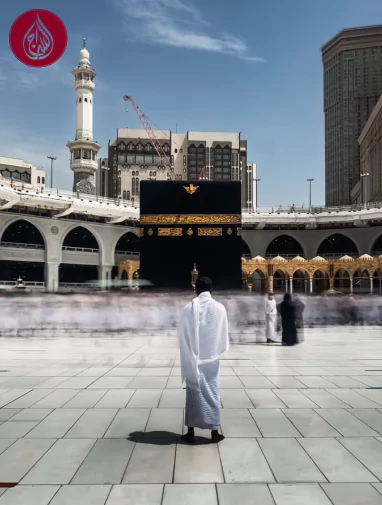Islamic Sunnah Prayers are a powerful way to deepen your connection with Allah and strengthen your faith beyond the five daily obligatory acts of worship. These voluntary prayers, practiced regularly by Prophet Muhammad (PBUH), offer countless rewards and reflect the true spiritual core of Islam. In the UK, many Muslims seek ways to stay spiritually grounded amid busy lives.
This complete guide by As-Siraj UK, a trusted Islamic charity, helps you understand the different types of Sunnah and Nafl prayers, their timings, and their significance. Whether you’re new to Islam or aiming to enrich your religious observance, this article provides practical steps and authentic knowledge to help you grow closer to Allah daily.
What Are Sunnah and Nafl Prayers in Islam?
Sunnah prayers are those that Prophet Muhammad (PBUH) regularly prayed. These prayers are not compulsory like the five daily prayers, but they are highly recommended. There are two types: Sunnah Mu’akkadah (emphasised) and Sunnah Ghair Mu’akkadah (non-emphasised). Doing these prayers shows love for the Prophet and increases reward.
Nafl prayers are totally optional and show extra devotion. They include the Tahajjud prayer, Duha prayer, and Awwabin prayer, among others. These are not tied to set prayer times in Islam but are offered freely for spiritual growth. The Prophet said that every rak’ah you pray brings you closer to Paradise. These acts are the hidden gems of religious observance.
The Importance and Virtues of Sunnah and Nafl Prayers
Voluntary prayers bring big benefits in both this life and the next. They complete the gaps left in our obligatory acts of worship, like a patch on a torn cloth. The Prophet (PBUH) said that on Judgment Day, Allah will ask the angels to check our extra prayers if our Fard are not complete.
In the UK, life can get busy. But making time for voluntary prayers gives peace. These prayers are like a quiet talk with Allah, a break from stress. It’s also a way to earn reward while showing gratitude. Think of it as a personal, private conversation – one only between you and your Lord. These prayers bring barakah into your day, strengthen your faith, and keep your purity of intention strong.
List of Regular Sunnah Mu’akkadah Prayers
Sunnah Mu’akkadah were always prayed by the Prophet (PBUH) and skipping them often is disliked. You should try to pray them daily, as they are a big part of our religious observance.
| Prayer | Sunnah Before | Sunnah After |
| Salat al-Fajr | 2 | 0 |
| Salat al-Zuhr | 4 | 2 |
| Salat al-Asr | 0 | 0 |
| Salat al-Maghrib | 0 | 2 |
| Salat al-Isha | 0 | 2 |
These are easy to add to your routine. Two extra rak’ah can take just a few minutes, but the reward is great. They help prepare your heart for the steps of Islamic prayer and remind you of the significance of prayer.
Additional Sunnah Ghair Mu’akkadah and Nafl Prayers
These prayers were done by the Prophet sometimes, not always. But doing them brings reward and builds a closer bond with Allah. Examples include 2 rak’ah before Salat al-Asr and Salat al-Isha. The Tahiyyat al-Masjid is another – 2 rak’ah prayed when entering a mosque, before sitting down.
There are also extra Nafl prayers like those after Wudu or between Adhan and Iqamah. These build inner peace and reflect the spiritual core of Islam. They are a powerful way to keep your heart attached to Allah.
Voluntary Prayers with Special Timing and Purpose
Some voluntary prayers have special times. The Tahajjud prayer is prayed in the last third of the night. It’s a time when the world is quiet and hearts are open. This prayer brings deep closeness to Allah and can bring tears to the eyes.
The Duha prayer, also known as Salat al-Ishraq, is done after sunrise. It can be 2 to 8 rak’ah, and it’s a way to give thanks. The Istikharah prayer is done when you need to make a decision. It shows you trust Allah’s plan. These prayers can guide your life, ease your stress, and bring answers.
Special Voluntary Prayers Every Muslim Should Know
Many voluntary prayers are connected to emotions – joy, fear, need, and regret. The Salat al-Tawbah is for asking forgiveness. After committing a sin, you can make Wudu and pray 2 rak’ah asking for mercy. The Salat al-Hajah is for when you have a strong need or problem. You pray and make du’a, trusting that Allah will respond.
The Salat al-Tasbih involves glorifying Allah in a special way during the prayer. It’s long but powerful, and you can do it weekly or monthly. These are all examples of repentance in Islam and communication with Allah at a personal level.
Obligatory (Fard) and Wajib Prayers Explained Briefly
The Five Pillars of Islam include Salat, the daily prayers. There are five Fard prayers: Salat al-Fajr, Salat al-Zuhr, Salat al-Asr, Salat al-Maghrib, and Salat al-Isha. Skipping them is a serious sin. They are not optional.
Wajib prayers are also required but slightly less strict. These include Salat al-Witr, Salat al-Eidain, and Salatul-Jumu‘ah. The Tarawih prayer during Ramadan is also Wajib in the Hanafi school. Understanding these differences helps you manage your daily schedule and improve your religious observance.
Common Misconceptions About Sunnah and Nafl Prayers
Some people think Sunnah and Nafl are not important. Others believe they’re only for elders or scholars. This is false. The Prophet (PBUH) encouraged all Muslims to pray them. Even children and youth in the UK can begin with just 2 extra rak’ah a day.
Another common myth is that there’s no time in a busy UK schedule. But these prayers take only minutes and can be done at work or school. Setting a reminder or using a prayer app can make it easy. As-Siraj UK offers support through classes and guides for new learners.
Summary Table of Daily Sunnah and Nafl Prayers
Here’s a simple table you can follow daily.
| Daily Prayer | Sunnah Mu’akkadah | Ghair Mu’akkadah | Nafl |
| Fajr | 2 before | – | – |
| Dhuhr | 4 before, 2 after | – | 2 more after |
| Asr | – | 2 before | – |
| Maghrib | 2 after | – | – |
| Isha | 2 after | 2 before | 2 more anytime |
| Witr | – | – | 1–3 after Isha |
Include other special prayers like Tahajjud, Duha, and Istikhara when possible. You don’t need to do them all in one day. Start slow and be consistent.
Faqs about islamic sunnah prayers
What are the 5 Sunnah prayers of Islam?
They are Sunnah prayers linked to the five daily obligatory prayers: before Fajr, before and after Dhuhr, after Maghrib, and after Isha.
Which is the best Sunnah prayer?
Tahajjud prayer is considered the best Sunnah prayer due to its timing and deep spiritual rewards.
Which namaz is very powerful?
Tahajjud is one of the most powerful prayers; it’s offered at night and brings one closest to Allah.
How to perform Tahajjud?
Wake up after midnight, make Wudu, and pray 2 or more rak’ah, followed by sincere du’a.
Is Tahajjud Sunnah or Nafl?
Tahajjud is a Nafl prayer but was a Sunnah for the Prophet (PBUH) and highly recommended.
Final Thoughts: Building Consistency in Your Voluntary Worship
Start with one small Sunnah prayer daily. Maybe begin with 2 rak’ah before Salat al-Fajr. Over time, it becomes a habit. Always make Wudu, say the Takbeer, recite the Tashahhud, and end with Tasleem. Follow the Tajweed rules in recitation and keep your purity of intention strong.
As-Siraj UK is here to help you. As a UK-based Islamic charity, they provide classes, videos, and even Ulum Al Azhar study programs with teachers trained at Al-Azhar University. Their goal is to help you build a connection to the spiritual core of Islam and grow in your Islamic knowledge step by step.






